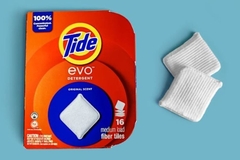EU restriction of specific nanomaterials in cosmetics elicits calls for advanced screening

15 Apr 2024 --- The EU Commission (EC) recently amended the Cosmetics Regulation by adding specific nanomaterials to the prohibited section.
At the same time, the Dutch National Institute for Public Health and the Environment (RIVM) on Advanced Materials is recommending ways to improve nanoparticle screening in cosmetics and food for greater safety.
Banned nanomaterials
The Scientific Committee on Consumer Safety (SCCS) believes there is “insufficient” data to assess the safety of certain nanomaterials. The prohibited compounds in question are flagged by the EC as a “potential risk” to human health.
The nanomaterials include:
- Styrene/acrylates copolymer and sodium styrene/acrylates copolymer.
- Copper and colloidal copper.
- Colloidal silver.
- Gold, colloidal gold, gold thioethylamino hyaluronic acid and acetyl heptapeptide-9 colloidal gold.
- Platinum, colloidal platinum and acetyl tetrapeptide-17 colloidal platinum.
The EC prohibits placing cosmetic products containing these nanomaterials on the EU market as of February 2025. They will no longer be available in the EU as of November 2025. The nanomaterials were also scrutinized in 2022.
Hydroxyapatite (nano) restrictions
The governing body restricts hydroxyapatite (nano) to a maximum of 10%, which can be used in toothpaste and 0.465% in mouthwash. However, it cannot be used in applications exposed to the user’s lungs.
 EC prohibits certain nanomaterials due to their “potential risk” to human health. Additionally, only specific nanomaterials that meet characteristic requirements can be used.
EC prohibits certain nanomaterials due to their “potential risk” to human health. Additionally, only specific nanomaterials that meet characteristic requirements can be used.
The EC prohibits cosmetics containing hydroxyapatite (nano) that do not meet the specific requirements as of February 2025. From November 2025, cosmetic products containing hydroxyapatite (nano) “shall not be made available.”
The restrictions are based on an earlier opinion by the SCCS.
New methods to detect nanoparticles
RIVM on Advanced Materials highlights recent advancements in scientific research that propose new nanoparticle detection methodologies. Despite the progress made, they note persisting challenges in fully validating these new methods, looking at the case of titanium dioxide and powder-based facial cosmetics.
To address screening issues, RIVM suggests that the EU Food Safety Authority “should discuss creating a register of titanium background quantities in food,” and the SCCS “should discuss developing reference materials with a known quantity of nanoparticles in consumer products.”
“With these measurement approaches [presented in the studies], it seems technically possible to enforce the presence and absence of nanoparticles, although it remains a challenging task. The challenge may be even larger for nanoparticles without metallic components,” believes RIVM.
By Venya Patel













